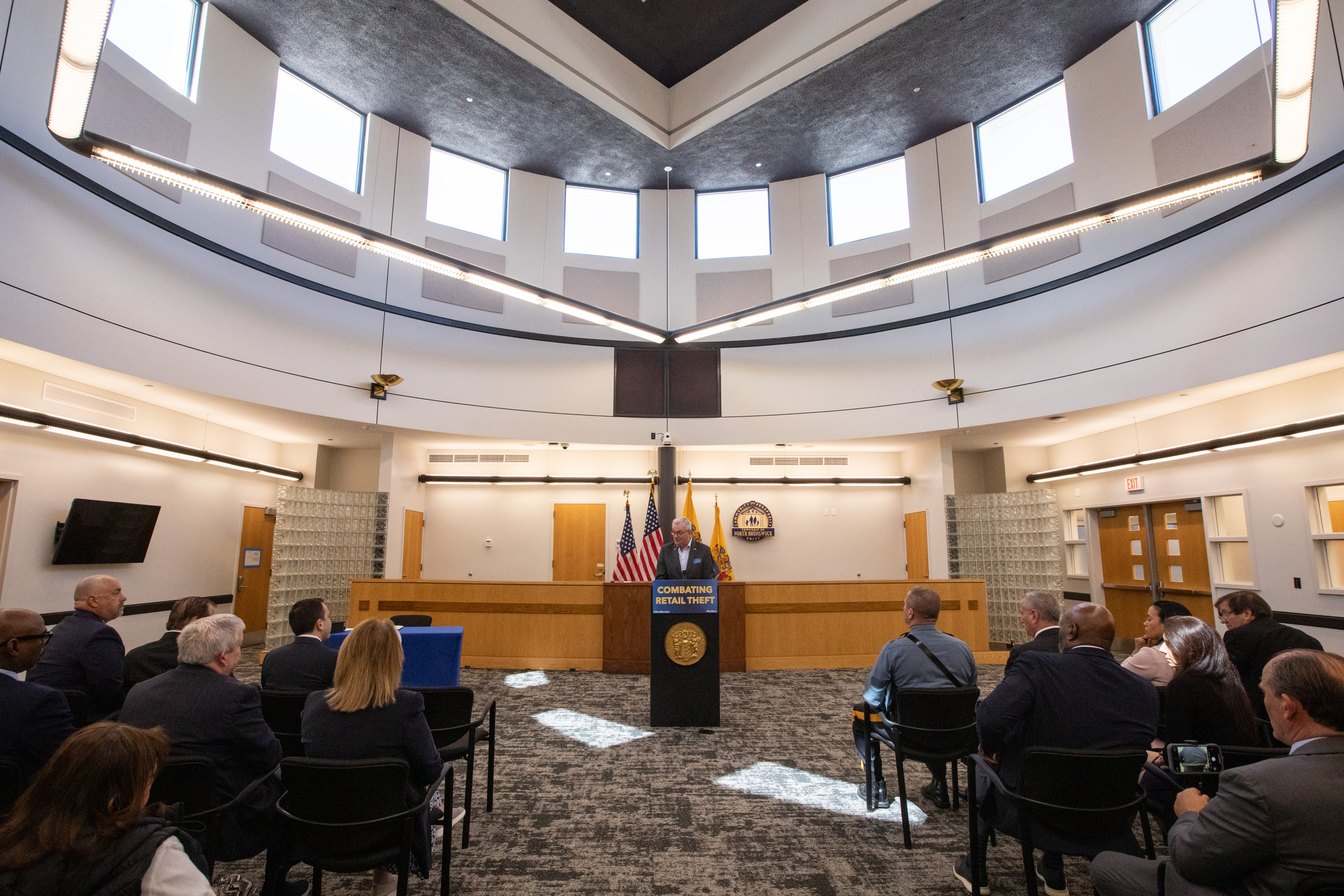TRENTON, NJ – New Jersey Governor Phil Murphy says he has a solution to a problem he created. Since taking office, his relaxed stance on retail theft-related crimes and liberal judges unwilling to throw perpetrators behind bars has created an environment of opportunity.
In what was at first believed to be an April Fool’s Day joke, Governor Murphy said he’s ready to start taking retail crimes seriously.
Then, we realized he might be serious. Then, we remembered that it was an election year.
In a move that has raised eyebrows across New Jersey, Murphy announced a new initiative to combat organized retail theft on April 1—just months before a pivotal election to determine his successor. The Democrat, who has held office since January 2018, touted the plan as a decisive step to address the growing scourge of “smash and grab” robberies, promising upgraded penalties and extended prison terms for offenders.
But for many residents and critics, the sudden tough-on-crime stance reeks of political opportunism after seven years of what they call dangerously lenient policies.
Murphy’s announcement, shared via a post on X, comes as viral videos of brazen thefts have flooded social media, spotlighting a surge in retail crime that has left business owners and everyday citizens frustrated. “We have all seen viral videos of ‘smash and grab’ robberies in which thieves run into stores and destroy display cases to steal large quantities of goods,” the governor wrote. “Today we are cracking down on the threat of organized retail theft.” Yet, skeptics argue this newfound resolve is a desperate bid to salvage his legacy as crime rates have climbed steadily under his watch.
Since taking office, Murphy has faced accusations of being soft on criminals, with policies that critics say have emboldened lawbreakers. His administration’s push for criminal justice reform, including bail reform and early parole programs, has been blamed for releasing repeat offenders back onto the streets, where they’ve continued to wreak havoc. Retail theft alone has spiked in recent years, with New Jersey businesses reporting millions in losses—a trend many attribute to a lack of deterrence. “For seven years, Governor Murphy ignored the warning signs,” said State Senator Michael Testa, a vocal Republican critic. “Now, with an election looming, he’s pretending to care. It’s insulting.”
The timing of the announcement has only fueled the backlash. With the gubernatorial election just months away, Murphy’s term-limited exit leaves his party scrambling to defend his record. Political analysts suggest the crime crackdown is a calculated move to blunt attacks from opponents who have made public safety a central campaign issue. “This is classic political theater,” said Dr. Rachel Harmon, a political science professor at Rutgers University. “After years of downplaying crime, he’s trying to rewrite the narrative at the eleventh hour.”
Residents, too, are skeptical. “Where was this energy when my store got hit three times in six months?” asked Maria Gonzalez, a small business owner in Newark. “I’ve lost thousands, and all we got were excuses about ‘root causes.’ Now he cares because votes are on the line?”
Her sentiment echoes a growing chorus of New Jerseyans who feel abandoned by an administration they say prioritized ideology over safety.
Murphy’s defenders argue that his focus on rehabilitation and reducing incarceration rates reflects a progressive vision that takes time to bear fruit. They point to declining violent crime rates in some areas as evidence of success. But those claims ring hollow for many when smash-and-grab thefts and carjackings dominate headlines, eroding public trust.
As the election nears, the governor’s late pivot to a tougher stance may not be enough to quiet the critics—or erase the memory of seven years they say were marked by inaction. For New Jersey voters, the question remains: is this a genuine shift, or just a politician’s last-ditch effort to dodge accountability? With crime a top concern, the answer could shape the state’s future.

